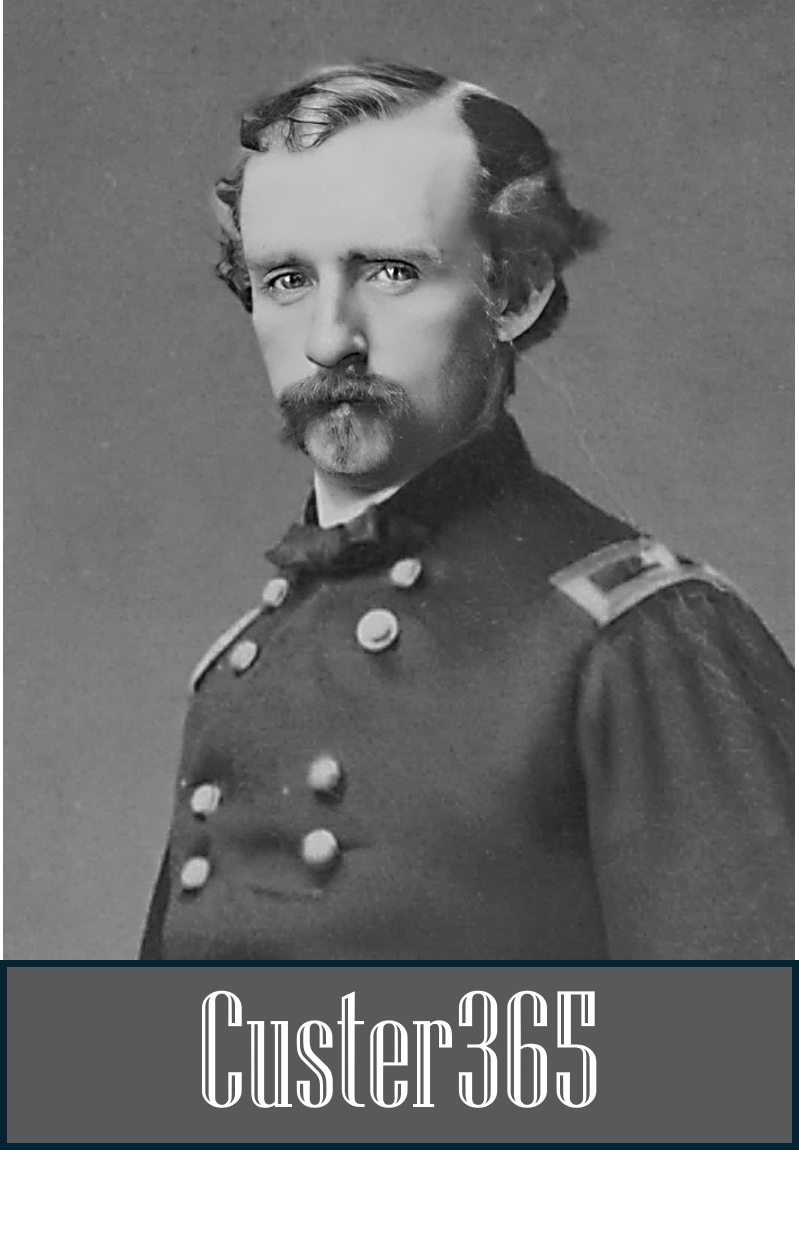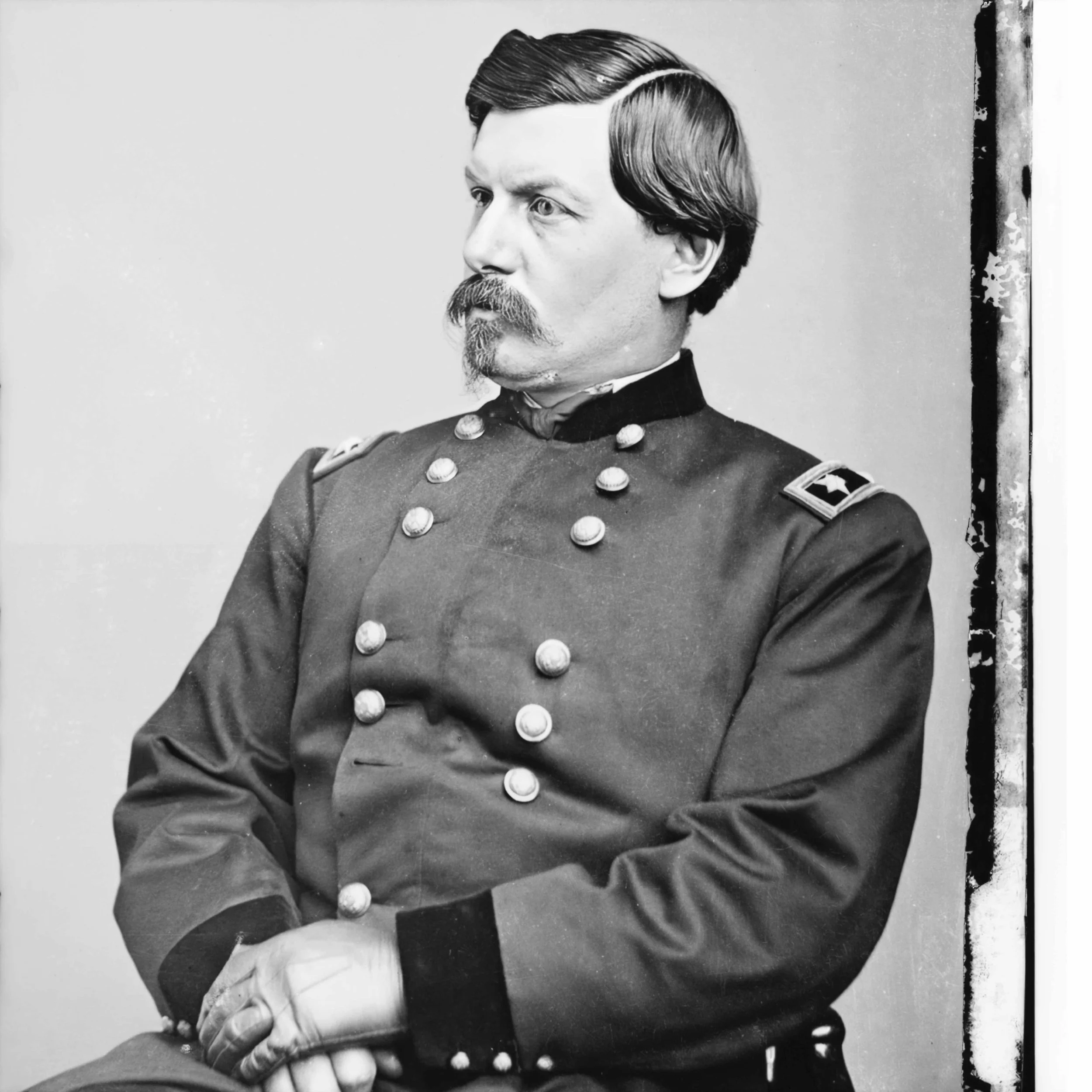JULY 13: Aide-de-Camp Custer
Gen. George B. McClellan, commander of the Army of the Potomac (Credit: Library of Congress)
George Armstrong Custer spent July 1862 serving as aide-de-camp to Union General George B. McClellan in the Army of the Potomac. Here’s how he got there.
After graduating from West Point on June 24, 1861 and receiving a commission as second-lieutenant, Custer reported to Washington D.C. for assignment. He was dispatched to the 2nd Cavalry in the field. General of the Army Winfield Scott is believed to have tasked Custer with carrying orders to General Irvin McDowell to begin the attack on Confederate forces on July 21, 1861 at the Battle of Bull Run. The battlefield was a mere 30 miles from Washington, D.C., drawing legislators and other lookie-loos to ride up in their carriages and view the action.
McDowell had an apparent advantage with a large Union force, but it turned out to be a route in favor of Gen. Pierre G.T. Beauregard and the Confederates. Their victory shook some sense into northerners that the Civil War was going to be a long, tough slog. McDowell was sacked and replaced by General McClellan, whose initial actions were to bolster troop training.
By May of 1862, Custer had assembled an impressive “body of work”, including:
o Service as first aide-de-camp to Brigadier General Phillip Kearney. Custer greatly admired Kearney, and later claimed to have learned valuable lessons in leadership as well as preparation and training procedures for his troops from this general.
o During the siege of Yorktown, Virginia (spring 1862), Custer was assigned duty under Brigadier General William Farrar “Baldy” Smith and flew some of the first missions as a military observer in a Union Army hot-air balloon.
o While serving on the staff of Brigadier General Winfield Scott Hancock, as hesitant Union troops stalled at charging into a line of Confederate soldiers at Williamsburg on May 5, 1862, an impatient Custer spurred his horse and burst from their midst to lead a successful charge. Custer later returned to friendly lines with a captured officer and five enlisted men, and—the real trophy—a Confederate battle flag, the first one taken in the war by the Army of the Potomac.
o Later in May 1862, Custer guided a raiding party along the Chickahominy River behind enemy lines. According to the official report “he was the first to cross the stream, the first to open fire, and one of the last to leave the field.”
Custer’s courageous actions and positive outcomes drew the attention of Major General George Brinton McClellan, commander of the Army of the Potomac. An impressed McClellan invited Custer to join his staff with the brevet rank of captain. Custer was appointed aide-de-camp in late May or June 1862.
By mid-July 1862, the Army of the Potomac was cleaning up in the aftermath of the Seven Days Battles, fought from June 25 to July 1, 1862, near Richmond, Virginia. They were part of McClellan’s Peninsula Campaign, which saw McClellan’s forces retreat from the Confederate capital after initially threatening it and withdraw to Harrison’s Landing.
The role of aide-de-camp required aides to carry dispatches and assist McClellan in the operational matters of the army. Developing strategies and battle planning, the really big stuff, was left to senior staff officers.
“aide-de-camp, (French: “camp assistant”), an officer on the personal staff of a general, admiral, or other high-ranking commander who acts as his confidential secretary in routine matters. On Napoleon’s staff such officers were frequently of high military qualifications and acted both as his “eyes” and as interpreters of his mind to subordinate commanders, even on occasion exercising delegated authority.”
Napoleon Bonaparte (Credit: Library of Congress)
McClellan said of his aide: “In those days Custer was simply a reckless, gallant boy, undeterred by fatigue, unconscious of fear; but his head was always clear in danger and he always brought me clear and intelligible reports of what he saw under the heaviest fire.”
Custer remained with McClellan until the latter was relieved of command of the Army of the Potomac by President Abraham Lincoln on Nov. 5, 1862. Custer greatly admired the General through battles at Fair Oaks and Gaines Mill, where he proved himself invaluable to McClelland as a second set of eyes and ears.
While awaiting new orders, Custer returned to Monroe, Michigan, where he had been living with his sister and her husband prior to departing for West Point. It was in that city by a lake during a Thanksgiving party that George Armstrong Custer was introduced to Elizabeth Clift “Libbie” Bacon.
On May 6, 1863, Capt. Custer was assigned as aide-de-camp to General Alfred Pleasonton.



